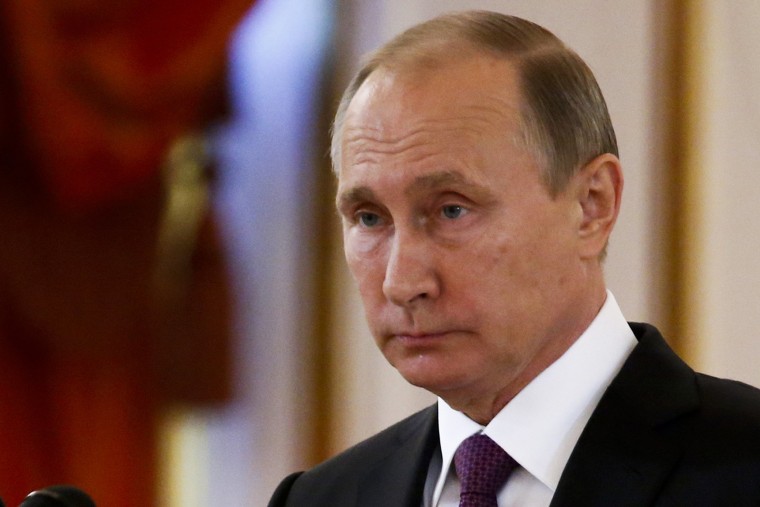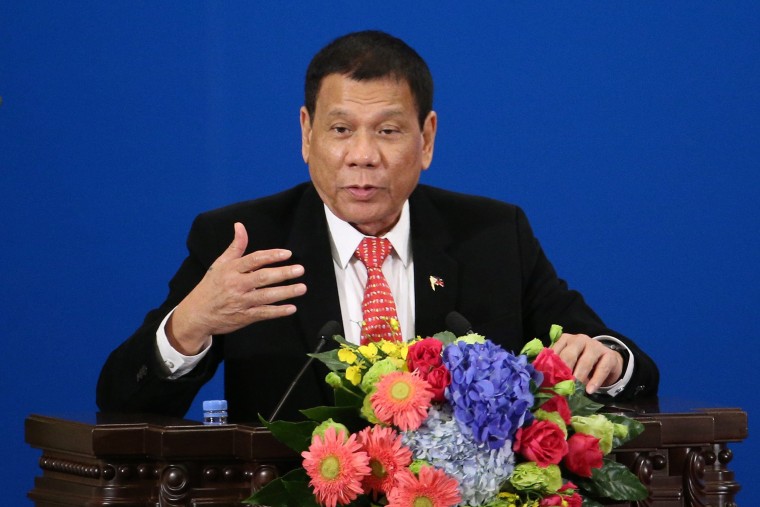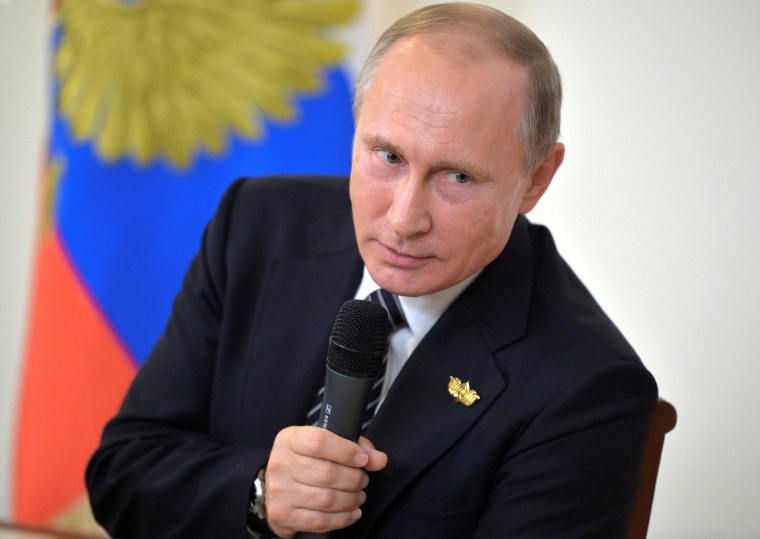The Philippines and Russia became the latest countries this week to announce their plans to turn their backs on the International Criminal Court — a move that's worrying experts who say it delegitimatizes the institution's quest for justice.
What happened?
Russian President Vladimir Putin — who continues to face intense scrutiny over airstrikes in Syria and the annexation of the Ukrainian territory Crimea two years ago — signed a decree on Wednesday to remove his country from the court. Russia had signed the Rome Treaty in 2000 that established the court, but never officially ratified it.
A day later, Philippines President Rodrigo Duterte called the Hague-based tribunal “useless” before leaving for the Asian-Pacific economic summit in Lima, Peru. Duterte — who many observers believe should face charges at the ICC for the thousands killed in his country as a result of his declared war on drugs — added, “They are useless — those in the International Criminal [Court]. They [Russia] withdrew. I might follow. Why? Only the small ones like us are battered.”

Alex Whiting, a former prosecutions coordinator at the ICC who now is a professor at Harvard Law School, said Duterte's rationale is likely to avoid prosecution himself. For Russia, it's a signal that the country will not be supportive of any potential court investigation having to do incursions in Ukraine or Georgia.
But Russia and the Philippines are just the latest to leave or potentially ditch the ICC, which began fully functioning in 2002 in an effort to go after people who committed international offenses, including genocide and crimes against humanity. Last month, three African countries — South Africa, Burundi and Gambia — said they were pulling out, arguing that their continent’s leaders have been unfairly targeted.
Many other major powers — like the U.S., China and India — never joined the ICC in the first place. The U.S., in particular, was concerned its soldiers could face unfair prosecutions. But up until this point, no countries that had joined had then left the tribunal. And the court has consistently gained new member countries, seeing its membership peak at 124 nations. That’s why some experts say the new flurry of departures is alarming.

The potentially 'dangerous' consequences
In order to be considered legitimate, “the court ultimately depends on getting as close to as universal acceptance as possible,” said Whiting. A dangerous precedent has been set in that “countries that come under the scrutiny of the court are now pulling out … there doesn’t seem to be a diplomatic price to pay.”
“Almost every year the court was getting new members. There was a feeling that slowly but surely it would become a universal institution. Now that view has taken a real hit,” said David Bosco, an associate professor at Indiana University’s School of Global and International Studies and author of “Rough Justice: The International Criminal Court in a World of Power Politics.” He added: “It’s looking less like an institution that will become universal in the future.”
Practically, the countries' departures means it becomes impossible for the ICC to prosecute cases in those places. "It's a free pass for crimes that have been committed and potentially for crimes in the future," said Whiting.
Since it began operating, the court has indicted 39 people, including Sudanese President Omar al-Bashir, Libya’s Muammar Gaddafi, and former Ivory Coast president Laurent Gbagbo. It’s faced criticism, including alleged bias against Africa and not having its own police force to go after suspects, and not having as much support as it could from the United Nations. The ICC is clearly imperfect. But that doesn't mean it's not important, say experts.
The future of the ICC
So what will happen to the ICC, especially if more countries follow Russia and the Philippines out the door?
“The court is going to have a few very difficult years,” said Whiting, predicting the ICC may have to work on smaller cases to show it can be successful. “Countries will inevitably return to international engagement in the future, but the court will have to wait for that turn.”
“It’s hard to kill an international organization,” added Bosco, surmising a few more African countries with withdraw and the court may play more of an assistant role to national court systems in the future. “But I think the court will hold on to a core membership…It will be a reduced and humbled court, but a court that still operates.”
